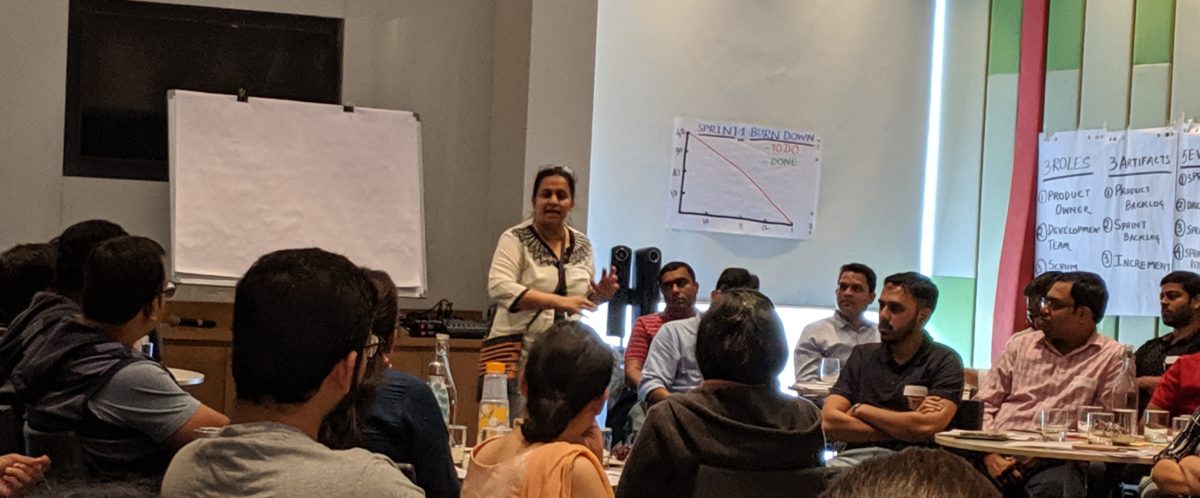In last post we discussed about how the role of a tester changes in agile world. To cope with the changed world, a tester needs to acquire a few new skills. This post discusses what exactly needs to be done

Whenever the two words agile and tester come in one sentence, the next word to be expected is automation. While automation does form a part of the skill repository of tester, its not the only skill they need to acquire to fit in agile world.The diagram above showcases snapshot what needs to be learnt new by a tester in order to thrive in this new world!
- Scrum Framework – This category is self explanatory 🙂 A good tester needs to know the framework he or she is operating in. In most of the agile projects – the framework is scrum. The Tester needs to know the same
- Common Agile Practices Agile projects use some practices not mandated in scrum. Knowing these practices helps the tester. Some practices like TDD/BDD or Integrating testing in CICD pipeline in fact keep more focus on testing. Testers need to learn these practices well
- Agile mindset More than the events and artifacts, agile projects are set apart by the principles and values which the team adheres to. It is critical that the testers really need to understand how the thought process differs. An agile project will focus on getting user usable deliverable out at every sprint. This singular goal drives all activities including testing. A tester needs to now wear the hat where he helps the developer ship out defect free code – The focus now is not finding maximum defects but on ensuring defect free delivery.
- Feedback loop A tester in agile project works with frequently changing requirements. This necessitates a ongoing discussion between tester and business community as well as developer. The tester should continually update the business community on the testing impact the new requirements have! He also needs to work with developer to pass on insights that he has from his testing till date. These can be typical defects , areas which the tester think will have down stream impact etc. Testers have a wealth of knowledge that can enable the developer to deliver a best in class code. A tester should be conscious of his responsibility to have this constant feedback going. On the other hand, a tester needs to actively seek inputs on how his tests are impacting project. Are they helping to avoid defects in later stages? or they are just a time waste? Having this feed back loop going in both directions will help a tester to do his job efficiently
- Involvement In Events – I have seen cases where test team is absent from events like planning , daily scrum or the sprint review. Tester is very much a part of the whole team and needs to be an active participant in each event.
- Automation Automation is the word one hears often whenever agile is mentioned. A tester needs to learn not only functional automation but also need to automate test triggers.
